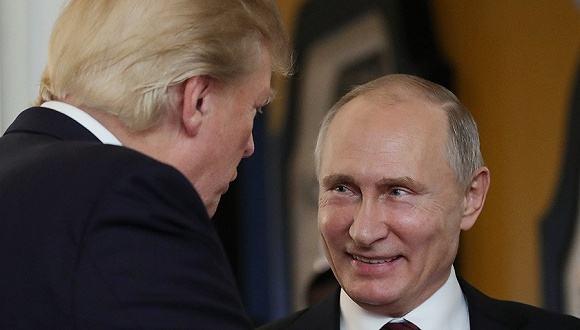The use of social media does not cause division so much as amplify it.
社会媒体的运用与其说是制造分歧,不如说是放大分歧。
The financial crisis of 2007-08 stoked popular anger at a wealthy elite that had left everyone else behind.
2007-08年的金融危机激起了对把其他人全都甩在身后的富人精英的公愤。
The culture wars have split voters by identity rather than class.
这场文化战争根据认同而不是阶层分裂了选民。
Nor are social media alone in their power to polarise—just look at cable TV and talk radio.
在它们造成两极分化的力量方面,社会媒体并非孤家寡人——只要看看的有线电视和电台脱口秀节目即可。
But, whereas Fox News is familiar, social media platforms are new and still poorly understood.
但是,福克斯新闻是人所熟悉的,而社会媒体平台却是全新的,仍然未被充分了解的。

And, because of how they work, they wield extraordinary influence.
同时,由于它们的运作方式,社会媒体握有格外的影响力。
They make their money by putting photos, personal posts, news stories and ads in front of you.
它们靠把照片、个人的帖子、各种新闻故事和广告推送到你面前来赚钱。
Because they can measure how you react, they know just how to get under your skin.
由于能够评估你如何反应,它们懂得怎么激怒你。
They collect data about you in order to have algorithms to determine what will catch your eye, in an “attention economy” that keeps users scrolling, clicking and sharing again and again and again.
它们收集关于你的数据,是为了在让用户一遍又一遍地翻页、点击并分享的“眼球经济中”,让算法去决定什么会抓住你的注意力。
Anyone setting out to shape opinion can produce dozens of ads, analyse them and see which is hardest to resist.
任何打算左右舆论的人都能生产几十广告,分析并从中发现哪一个最难让人拒绝。
The result is compelling: one study found that users in rich countries touch their phones 2,600 times a day.
结果触目惊心:一项研究发现,在富裕国家,用户每天触摸手机2600次。
It would be wonderful if such a system helped wisdom and truth rise to the surface.
如果这样一种体系有助于展示智慧披露真相,那就太好了。
But, whatever Keats said, truth is not beauty so much as it is hard work—especially when you disagree with it.
但是,无论济慈是怎么说的,真相更多的是艰苦的工作,而不是美好之物——尤其是在人们对真相有异议的时候。
Everyone who has scrolled through Facebook knows how, instead of imparting wisdom, the system dishes out compulsive stuff that tends to reinforce people's biases.
每一个浏览过脸书的人都很清楚,这种体系是如何推出往往是强化人们偏见的偏执性内容的,而不是传授智慧的。
This aggravates the politics of contempt that took hold, in the United States at least, in the 1990s.
这放大了在上世纪90年代至少是在美国已经成气候的蔑视政治。











